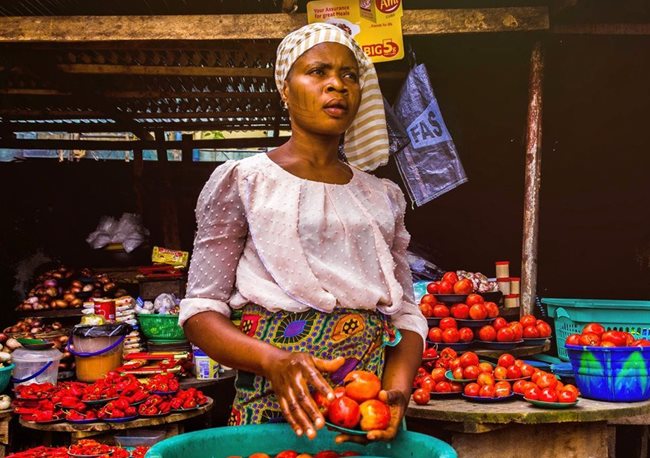The AfCFTA can change the circumstances of millions of African SMEs

The AfCFTA is an exciting game changer agreement for the countries who are signatories. Currently, Africa accounts for just 2% of global trade. And only 17% of African exports are intra-continental, compared with 59% in Asia and 68% in Europe. The pact is designed to create the largest free trade area in the world measured by the number of countries participating.
Connecting 1.3 billion people across 55 countries with a combined gross domestic product (GDP) valued at $3.4trn. It will boost regional income by 7% or $450bn, and lift 30 million people out of extreme poverty by 2035. Wages for both skilled and unskilled workers will also be boosted by 10.3% for unskilled workers, and 9.8% for skilled workers.
While the Covid-19 pandemic has thrown a harsh spotlight on the vulnerabilities of global supply chains, the putting in place of the AfCFTA agreement couldn’t be more timely for Africa. AfCFTA is a catalyst for new ways of doing business, producing, working and trading within Africa and with the rest of the world. It highlights the significant and increasing commitment of the African Union to reducing poverty through trade. As Ngozi Okonjo-Iweala, newly appointed as the WTO director general, recently stated, “Trade is a force for good, and properly harnessed can help lift millions out of poverty and bring shared prosperity.”
SMEs stand to benefit
The AfCFTA can play the role of unlocking innovation, growth and productivity across the continent, but significantly, for its SME segment, by translating spending power into economic development. Cutting red tape and simplifying customs procedures could bring significant income gains for SMEs. By improving their ability to quickly scale up using digital skills, SMEs have the chance to capitalise on the potential trade boom.
This is particularly important when we consider that SMEs represent about 90% of businesses and more than 50% of employment worldwide. Formal SMEs contribute up to 40% of national income (GDP) in emerging economies, and these numbers rise significantly if we include informal SMEs. In emerging markets, most formal jobs are generated by SMEs, which create 7 out of 10 jobs.
Digital skills are essential for any organisation to grow, and we want to encourage technology adoption and skills development in every organisation. Microsoft 4Afrika’s unconventional partnerships with SMEs and telco’s have proven successful in supporting SMEs on their path to success. The partnership with FirstBank, Vodacom, MTN and Liquid Telecom has facilitated extending cloud services to SMEs, supporting their growth. To date, 4Afrika has reached 1.7 million SMEs and brought 728,000 online.
Digital platforms are effective enablers for positive change
A powerful force expediting cross-border trade is the accelerating progress of digital technology in areas spanning from trade logistics, automated processing and e-payments.
Digital platforms and the adoption of mobile technology are increasingly making trade easier by promoting digital, financial and social inclusion. By aggregating demand across the continent, these platforms give small and medium businesses opportunities to access new markets, and to offer goods and services previously limited by location constraints and marketing costs. These platforms create a diversification effect that boosts the robustness of supply chains, a necessary step when global supply chains remain fragile.
Many SMEs in emerging markets struggle with a lack of access to affordable finance. A joint fintech agenda from the World Bank and the International Monetary Fund (IMF) calls for countries to enable new technologies to enhance financial service provision. This is where platform technology can have a powerful impact. For example, in Nigeria, payment technology company Flutterwave enables Africans to build global businesses that can make and accept any payment from anywhere in the world. Extending digital inclusion can help SMEs take advantage of the trade benefits of the AfCFTA.
Public-private collaboration is key
The World Bank, in its Africa Pulse: Charting the Road to Recovery, comments that as global trade takes time to recover, policymakers in the region need to promote the development of regional value chains while building the foundations needed for a comprehensive continental engagement. Governments should seize the opportunity to develop policies and prioritise investments that build greater resilience, boost productivity and generate jobs. Investing strategically in digital infrastructure, services and skills is a part of this process.
Governments have a role to play in fostering an enabling environment for rapid digitisation by ensuring that all the key enablers are in place to support digital adoption. Policymakers and the private sector must work in partnership and engage with each other to update and review national trade and digitisation policies to ensure alignment that benefits both government and business communities in enabling and supporting cross-border trade.
A single digital economy is pivotal in Africa
Digital infrastructure, digital skills, digital financial services and an environment supportive of digital business are crucial elements of the single digital market for Africa that will enable African companies to compete regionally and globally. Microsoft is committed to supporting digital policy development and implementation across Africa, working with governments in creating sound digital policies that enable people and businesses to participate fully in the global digital economy.
Regional integration could help Africa’s digital economy boom, and key to this is connectivity, data accessibility and innovation. A major factor for the success of the AfCFTA will be how countries adapt and invest in technologies like broadband connectivity, e-commerce, integrated payment systems, and integrated digital identity systems, with big data and AI as enablers.
Realising a single digital market in Africa would allow for economies to scale. This in turn, will attract increased investment from both African and external investors, fostering greater growth and job creation.
If African governments, together with private partners and organisations, can invest in digital transformation through supporting startup innovation, through contributing to skills development and in many other verticals, this will drive meaningful gains towards unlocking Africa’s vibrant potential. We must build the foundations of a thriving digital economy throughout the continent for the full benefit of the AfCFTA to be realised.






























